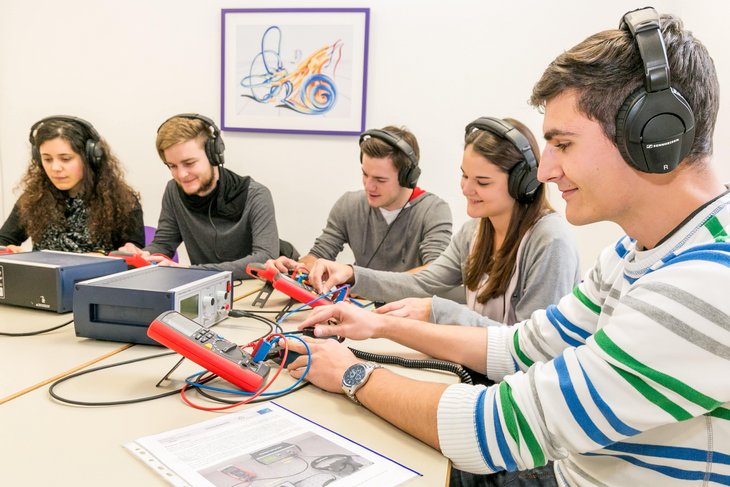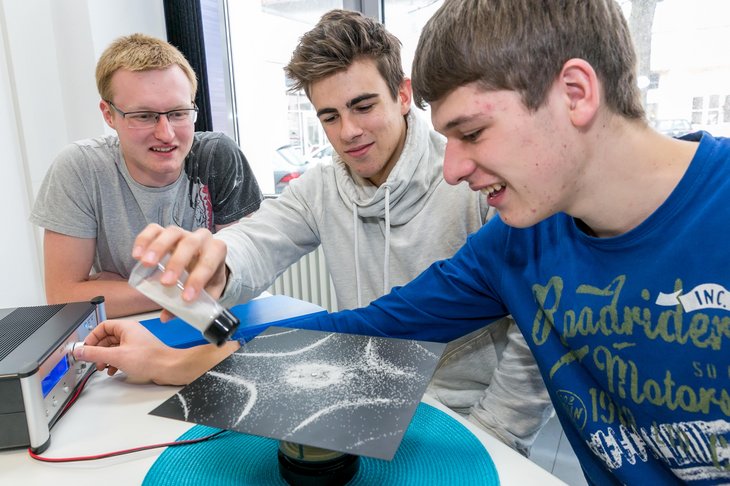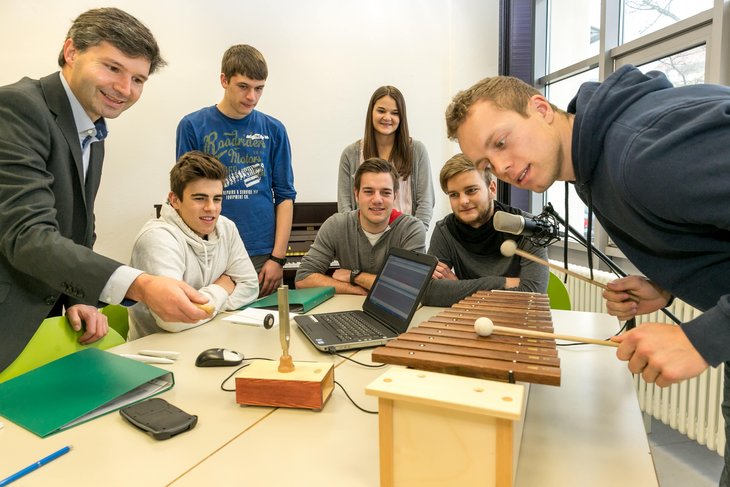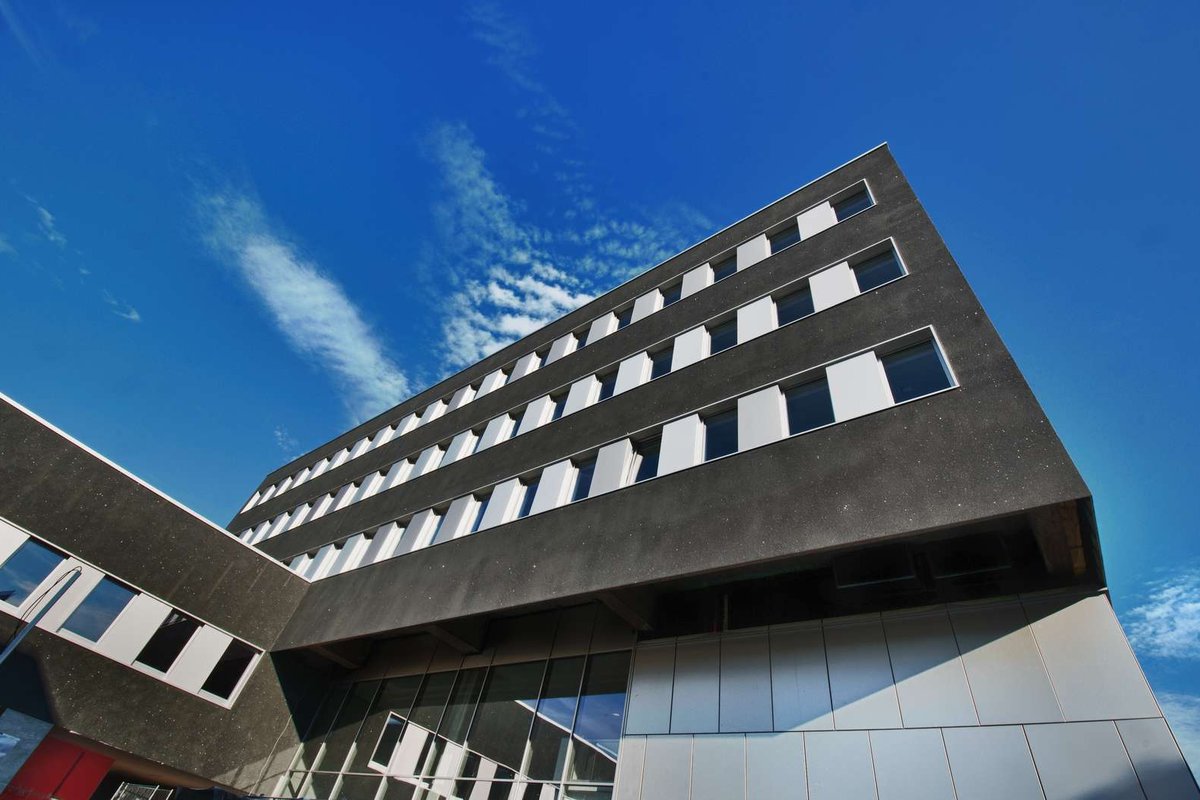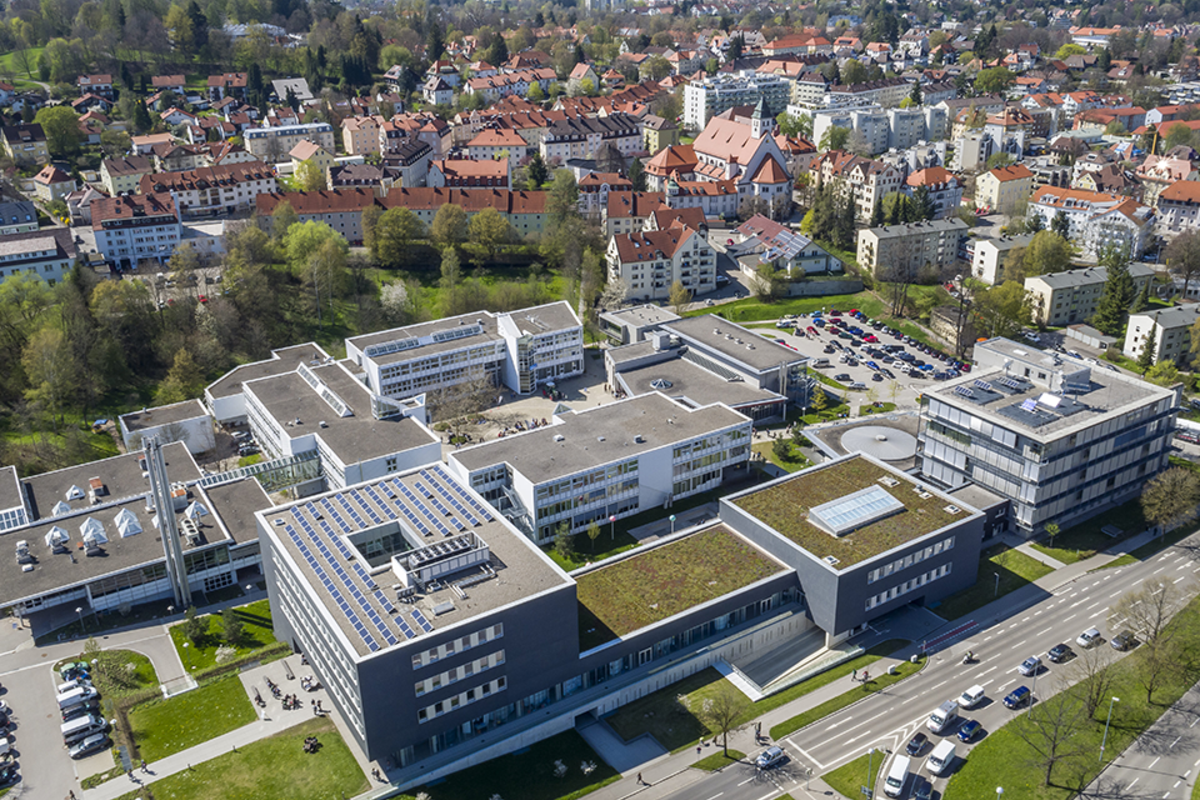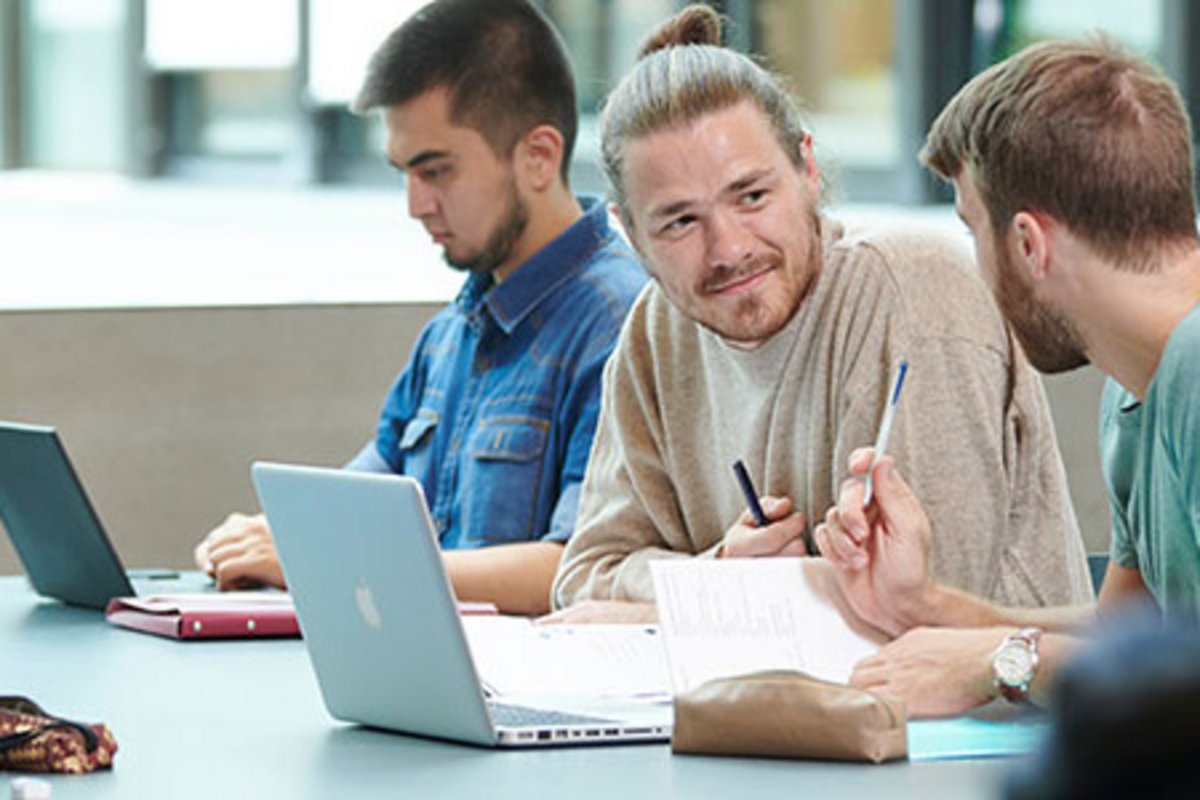Exciting experiments and fun discoveries
Humans perceive their own bodies and the world around them with their senses. We conduct some revealing and amazing experiments to demonstrate this in our laboratory for school pupils, giving them an opportunity to spend some time outside school independently investigating and conducting their own experiments under expert guidance. Exciting tests are a fun way of illustrating key findings in physics, physiology and psychology and sparking pupils’ fascination in the natural sciences and technology.
The programme we offer in our Laboratory for School Pupils caters for 8th grade classes (7th grade by request) and above, together with their teachers, at grammar schools, secondary modern schools and secondary vocational/technical colleges (“FOS/BOS”). You can arrange a visit for any school day. After completing the standard programme or special session in the lab, there is also the option of taking a tour of the campus and library.
If you would be interested in this, simply get in touch – either via our online registration form or by contacting the Director of the Laboratory for School Pupils, Professor Eimüller .
Our programme
Standard programme
The experiments on the standard programme investigate vision and hearing. Six set-ups show students how optical illusions confuse our senses, examine the colour pixels on their smartphones under the microscope, and create fascinating colour effects using additive light mixture. They will test the limits of their hearing and measure their own auditory threshold curve.
We recommend the short version (2.5 hours in total) for pupils in the 8th to 10th grade and the longer version (3.5 hours) for 11th and 12th graders. Please divide your pupils into six groups of roughly equal size in advance. The class should be accompanied by at least one teacher, who will be expected to remain present during the experiments and keep charge of the pupils.
- Duration: Short version: 2.5 hours; Long version: 3–3.5 hours (plus guided tour of campus, approx. 30 mins on top)
- Maximum number of participants: 36 pupils
- 8th grade and above (7th by special request)
- Cost: free
- Sign up here
School visits
You can also invite Professor Eimüller to your school to present a solar observation or special talk for pupils. Potential topics:
1st “Our changing perception of the world”
Starting in ancient times, this talk explores how our perception of the world has been transformed by new findings in astronomy and cosmology – an exciting voyage of discovery tracing the work of Copernicus and Kepler through to Einstein, Hubble and Hawking. We will “experience” the Big Bang and then travel through galaxies and black holes before reaching state-of-the-art cosmology with its curious dark energies and questions about extra-terrestrial life.
- The talk plus Q&A lasts 2 teaching periods.
Target group: 9th grade and above, esp. 10th grade at grammar school based on curriculum for physics
2. “Climate change – causes, effects & measures”
Explains the scientific causes of climate change in a clear presentation, focusing particularly on the greenhouse effect and the special role played by CO2 , but also looking at solar activity and the dimensions of the Earth’s orbit. Global warming causes sea levels to rise, ice to melt in the polar regions and glaciers, and increasingly frequent extreme weather, also changing fauna und flora. Future developments will depend on tipping points, which can lead to drastic and irreversible changes. We will consider together with pupils what measures we could potentially take ourselves.
- The talk plus Q&A lasts 2 teaching periods.
- Target group: 9th grade and above
3rd “Bionics – how technology learns from nature”
This talk lifts the lid on the field of bionics, revealing how we might realise human dreams of sticking like a bur, crawling on the ceiling like a fly, repelling dirt like a lotus blossom, swimming like a shark and flying like a bird.
- The talk plus Q&A lasts 2 teaching periods / short version 60 mins.
- Target group: 7th grade and above
4. “The Sun – our star”
How about an extraordinary opportunity to observe the sun using a special H-Alpha solar telescope in your schoolyard? Pupils will be able to safely look at protuberances, sun spots and solar flares in real time. A talk about our central star (lasting 30 to 60 minutes) can be booked to accompany the demonstration .
- Target group: 5th grade and above
To arranges dates and/or other potential presentations, please contact Professor Eimüller .
Loans of measuring equipment
How does the level of CO2 rise in the classroom? Shouldn’t we really have opened a window by now? Pupils can use our Ergonomics Measuring Kit to get to the bottom of questions like these. We have joined forces with the Technical University of Munich to enable you to borrow all sorts of measuring devices as teaching aids. We can also provide scientific texts and special study packs on the subjects of climate, light, noise, air quality and anthropometry for students to consult in conjunction with using the equipment.
For further details, please see the TU Munich website or get in touch.
